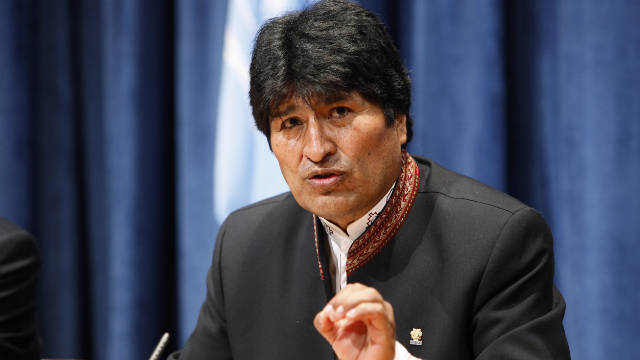By Ali Al-Bassam
Impunity Watch Managing Editor, News
GUATEMALA CITY, Guatemala — Rios Montt, the former Guatemalan dictator, was found guilty of genocide and crimes against humanity last Saturday for killing more than 1,700 Ixil Mayan Indians during Guatemala’s 36-year civil war. He was sentenced to 80 years in prison. Montt is the first Latin American ex-leader to be convicted of genocide, and the first former, or current leader in the world to be convicted of genocide in his own country.

The 86-year old Montt held power in Guatemala from 1982-1983. After overthrowing one leader during a coup, he was was overthrown immediately after. During his year-long dictatorship, he commanded his troops to rape, torture, and murder thousands of Ixil Mayans when he implemented a scorched-earth policy against leftist rebels. Troops massacred the indigenous population because they were thought to be assisting the rebels. Over 200,000 people died during the course of the civil war.
After the civil war ended in 1996, Montt became a member of congress and was immune from prosecution. Montt was indicted in January 2012 after losing his immunity when he finished his congressional term. His attorneys tried to delay the trial in hopes that he would die before facing a court, however, attempts were futile when he and his former Chief of Military Intelligence, José Mauricio Rodríguez Sánchez, went before Guatemala’s Supreme Court on March 19, 2013.
In a courtroom packed with Ixil Mayan people, garbed in traditional clothing, Judge Yassmin Barrios told Montt that he was “fully aware of plans to exterminate the indigenous Ixl population.” Montt denied the charge, and proclaimed his innocence, claiming he never had control of the battlefield. Former U.S. President, Ronald Reagan was a supporter of Montt, believed that Mott was “a man of great personal integrity.” President Reagan believed that the dictator received a “bum rap” from rights groups when Montt implemented a scorched-earth policy.
The courtroom erupted in cheers after Montt, who claimed he had “never authorized, signed, proposed, or ordered attacks on a racial, ethnic, or religious group,” received his sentence. “I feel happy. May no one else ever have to go through what I did. My community has been sad ever since this happened,” said Elena de Paz, an Ixil Mayan whose parents were killed and home was burned by soldiers when she was only two years old. Nobel Peace Prize winner Rigoberta Menchu was also satisfied by the court’s decision. “Today we are happy, because for many years it was said that genocide was a lie, but today the court said it was true,” she said.
Amnesty International hailed the verdict, and called Montt’s trial “the trial of the decade.”
For further information please see:
Bloomberg News — Former Guatemalan Dictator Rios Montt Guilty of Genocide Charges — 11 May 2013
The Atlantic News Wire — Rios Montt Convicted of Genocide — 10 May 2013
Human Rights Watch — Guatemala: Rios Montt Convicted of Genocide — 10 May 2013
New York Times — Former Guatemalan Dictator Rios Montt Convicted of Genocide — 10 May 2013



